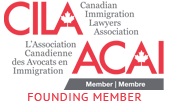Recent updates to Canada’s immigration system reflect the nation’s ongoing adaptation to changing needs and strategic directions. Renowned for transparent immigration guidelines, Canada ranks among the foremost nations globally for its warm reception of immigrants and commitment to multicultural values. However, the Canadian government has introduced policy changes to streamline the immigration process. Individuals planning to relocate to Canada must be well-versed with such policies for a seamless application process. This blog piece will shed light on crucial updates that potential immigrants and stakeholders need to know.
Crucial Updates in Canadian Immigration Policies
The following are some of the crucial updates in Canadian Immigration policies that you need to know.
1. Permanent Residence – Express Entry
Canada’s Express Entry system has undergone notable changes. Immigration, Refugees, and Citizenship Canada introduced six categories for category-based selection draws. This selection enables Canada to issue Invitations to Apply (ITAs) to prospective permanent residents with specific skills, training, or language ability. Notably, Canada will only accept the application for permanent residency who holds the following attributes:
- Proficiency in the French language;
- Experience in healthcare professions;
- Backgrounds in Science, Technology, Engineering, Mathematics (STEM);
- Skills in trade-related jobs;
- Experience in transportation roles;
- Specialization in the agriculture and agri-food industries
In addition to these categories, highlighting Canada’s immigration system had at least one draw. Beyond this, the Express Entry program in Canada consistently addresses applications related to the Federal Skilled Worker Program, Federal Skilled Trades Program, and Canadian Experience Class.
2. Reduced Processing Time for Express Entry
Another law the Canadian government has updated ensures individuals applying for permanent residence through Express Entry will have their applications processed within six months. Notably, this is considered a significant decrease from the current processing time of approximately eight to twelve months.
The new immigration rules of Canada showcase the government’s dedication to increasing the efficiency of the Express Entry system, encouraging more and more individuals to leverage the program and immigrate to Canada permanently. However, it’s important to note that individuals willing to apply for permanent residence through Express Entry must initially create a profile. Such a step will allow them to enter a pool of eligible candidates. They will be given a score based on their human capital factors, including age, education, work experience, language skills, etc.
The highest-scoring candidates will be invited to apply for permanent residence through regular draws every two weeks. Once individuals obtain an invitation to apply, they will have 90 days to submit a complete application.
3. Updated Immigration Policy
Another significant update is the Canadian government’s enhancement of its immigration strategy, which has already taken effect. Such changes include a new points-based system for assessing potential immigrants, in which the immigrants will be rewarded on various factors such as their skills, education, and work experience. In fact, the Canadian government would prefer individuals with existing family ties in Canada. Such a strategy is designed to welcome more highly skilled workers to Canada to stimulate economic growth.
4. Maximizing Express Entry Profile with French Language Skills
The Express Entry system stands as the primary pathway for skilled workers seeking permanent residence in Canada. Mastery of French, alongside English, can help boost the applicant’s Comprehensive Ranking System (CRS) score, which plays a crucial role in receiving an Invitation to Apply (ITA) for permanent residency.
In those cases where you have French language skills, you may be able to get extra points in the Express Entry system. It is worth noting that such points will be entirely based on English and French proficiency levels. Applicants are encouraged to engage with available resources and training programs to enhance their French language skills. Preparing for the proficiency tests improves chances within the Express Entry system and aids in the successful integration into Canada’s bilingual communities. Those with solid French abilities stand out, potentially securing crucial extra points that can make a significant difference in the competitive immigration landscape.
Conclusion
Navigating the dynamic terrain of Canadian immigration policies highlights the importance of being well-informed and prepared for a successful application journey. Individuals considering immigrating to Canada should understand such changes to ensure an error-free immigration process. However, seeking professional legal advice can help you navigate the complexities associated with a Canadian Immigration application, ensuring your journey to Canadian residency is as smooth and efficient as possible. Consulting with proficient and seasoned experts such as Kurzfeld Law could significantly impact achieving your objectives. Our legal specialists offer personalized advice and ensure compliance with all requirements, leveraging their extensive expertise in the intricacies of the Canadian immigration process.





